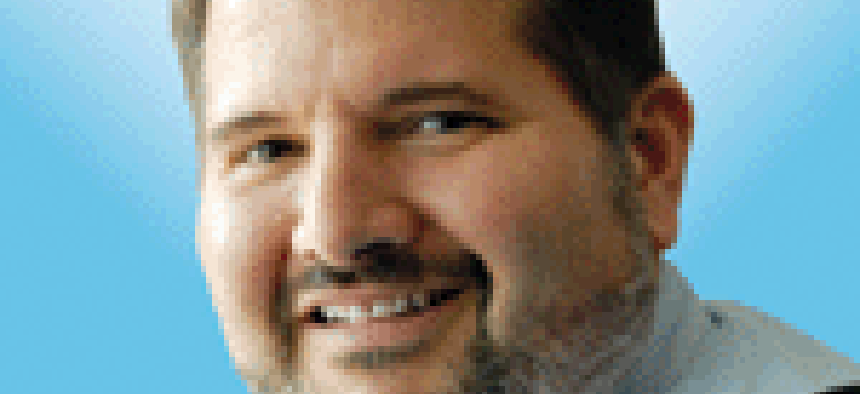Are generalists doomed to fail in today’s market?

Editor Nick Wakeman spoke with SAP North America's president about the state of the market. Why does Bob Courteau think the era of the IT generalist is over?
I had a great lunch conversation Aug. 24 with SAP North America’s President Bob Courteau and Jennifer Morgan, the new president of SAP Public Services. Courteau was fresh off a speech at the Federal Mobility Conference in Washington, D.C., where he laid out SAP’s strategy involving cloud computing, big data and mobility. All of which are major areas of growth for the company. I asked Courteau for his thoughts on some of the major shifts going in the broader technology industry, such as Hewlett-Packard Co.’s announcement to sell its PC business and dump its mobile devices and Google’s move to buy Motorola Mobility. I also mentioned the earlier moves by Motorola to divide into two companies – Mobility and Motorola Solutions, and ITT Corp.’s decision to split into three companies. While he didn’t want to comment directly on what HP is doing (note: HP’s CEO Léo Apotheker is the former CEO of SAP AG), Courteau said what is happening goes beyond the technology industry. “What you are seeing is an age of specialization because generalization didn’t work,” Courteau said. “You need to be a specialist, you need to differentiate and you need to be good at what you do.” Many of the companies that are shedding businesses or breaking up into multicompanies, are what Courteau called hybrid players. “Look at Google, who’s flying, they are a consumer play. Even Apple. They are doing some cool stuff, but they aren’t building billing systems, they are focused squarely on consumers,” he said. “They are centered on what they do really, really well.” In addition to the hybrid versus specialist debate, the technology industry also has a third paradigm with companies such as Oracle, IBM and HP, which want to own the computing stack from top to bottom, he said. Courteau said the stack is layers of IT that starts with hardware on the bottom, then operating systems, applications, technology and databases. “Do customers want a full stack so they can work with one vendor or do they want the best in class in each? We’ve declared that we are going to stick to a couple parts of the stack and partner with the best in stack for the rest,” he said. SAP’s play is in technology and applications, he said. “Some people think they need to be in all parts of the stack but in this world of specialization we don’t think it is sustainable,” Courteau said. Another driver also is the migration from the low end of the IT business to areas with higher margins. Take IBM’s transformation over the last decade, as an example. Its hardware business has shrunk as a percentage of its overall revenue, while software and services have grown, he said. “Services and software are better businesses from a margin perspective and they are growing businesses,” he said. “It is a flight to value, to margins, to things that are important to the customer.” So is SAP going to build its services business in search of higher margins? Nope. “We are not trying to grow services above a certain ceiling. We believe in the ecosystem,” Courteau said. “When our partners see us trying to take away too much it takes away from what is possible in working with them. We want to work with the best in the world and we want them to invest in SAP.”


